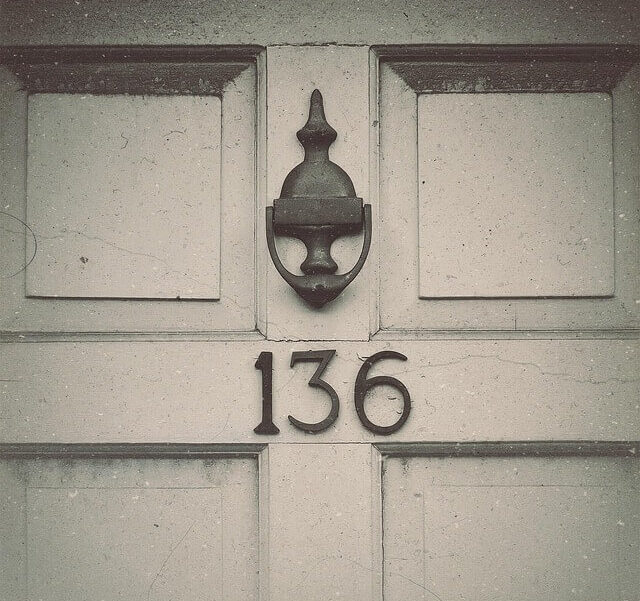Could a Payday Lender Send Bailiffs Over Missed Repayments?
Last updated on November 26th, 2025 at 04:51 pm
Yes, it is possible that a payday loans company could send bailiffs to your door over missed repayments – but note that this will likely be a last resort and other basic measures such as phone call follow-ups and SMS messages will be used first to follow up on missed repayments.
For a payday lender, there will be costs associated with sending bailiffs to collect any unpaid debts. The lender will usually use more practical and cost-effective methods to recover their losses first of all such as email reminders, letters, phone calls, text messages and similar.
However, in the event that the borrower has not responded to any communication or correspondence at all, the lender might take more severe measures to follow up on missed repayments and this might include using a bailiff to act on their behalf.
What Are The Legal Implications?
During the application process for a payday loan, a borrower will sign an online loan agreement where they agree to make scheduled payments on time.
A customer’s circumstances may be subject to change due to personal reasons or a loss of income and this could make it hard to repay their payday loan on time.
If payments are missed and the loan is in arrears, the lender has a legal right to carry out various measures to collect their debt and this includes:
- Follow up emails
- Follow up SMS messages
- Follow up calls
- Follow up letters
- Recurring attempts to collect from the debit account
Importantly, a lender is limited by law on the number of times that they can follow up for missed repayment to follow safe lending practices and to avoid harassing the borrower.
What Happens When a Bailiff Comes To Collect an Unpaid Payday Loan?
Arrives Peacefully – When a bailiff or debt collector is hired by a lender to follow up on a missed repayment, it is usually 1-3 people who professionally visit the home or residence of the borrower and ask for repayment. The company must write to the borrower several weeks in advance and only be allowed to visit during the hours of 6AM to 9PM. The bailiff must peacefully enter by knocking on the door and show proof of ID upon arrival.
No Physical Force Allowed – The bailiff is not allowed to use any physical force or coercion but the presence of an individual visiting the defaulted customer can be a more effective method to collect on payment.
Collect a Payment or Seize an Item – The bailiff may not be able to collect the full repayment amount, but may be able to recover a small contribution of the outstanding debt through cash or through seizing an item handed to them by the borrower. A bailiff is legally not able to take away any essential household goods or items such as essential living goods, pets or tools of trade (for people that are self-employed).
What Should I Do if a Bailiff Shows Up At My House?
- Ask for identification (certified enforcement agents must show ID).
- Do not open the door unless you choose to engage with them.
- Check if the debt is correct and whether they have a legal right to enforce it.
- Negotiate a repayment plan if possible.
- Seek advice from debt charities like StepChange or Citizens Advice.
How Can I Avoid Bailiffs Visiting My House?
Bailiffs or debt enforcement collectors will show up at your house as long as the debt is outstanding. If you have agreed a repayment plan with a lender and are paying this off on time, there will be no need for any more bailiffs to visit your house.
Additionally, paying off the debt in full will close the account and stop all future correspondence and action with the lender.
If you do not have the means to pay off the debt, you can speak to some family and friends to help or if you are having financial trouble, it might be worth speaking to a free debt support service from Citizen’s Advice Bureau or StepChange.
What Should I Do If I Am Behind on Payday Loan Repayments?
If you are missing payday loan repayments and are struggling to keep up with these, the most practical thing you can do is speak to your lender as soon as possible and explain your situation.
By avoiding any phone calls or emails, you are risking any late fees and charges being added to your account and your credit score being damaged. The longer you keep the debt outstanding with no arrangement or resolution in place, the more drastic the collection methods might be used such as bailiffs or court orders.
Customers in arrears will often set up arrangements with the lender which freezes the final figure and spreads this over a longer period of time until it is repaid. Rather than having to pay a full outstanding balance right away, this could be spread over several weeks or months to give you more breathing space.
Other options to get out of debt include speaking to a debt professional or debt management company to compartmentalise your debt and take steps to clear anything that is outstanding, even if it takes several months or years.
For free and impartial advice, you can speak to agencies such as Citizen’s Advice Bureau and StepChange.


Leave a Reply
Want to join the discussion?Feel free to contribute!